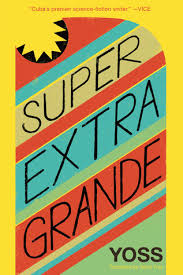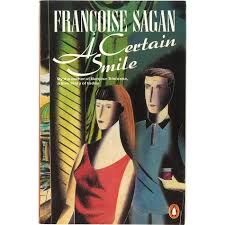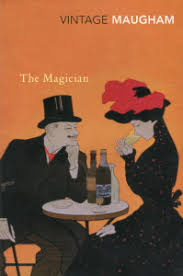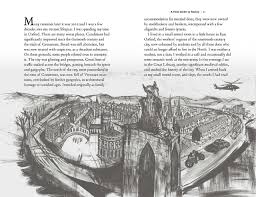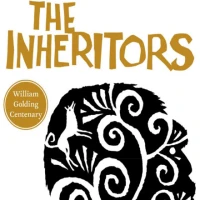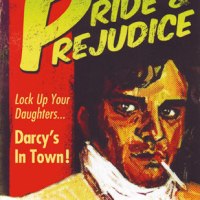It’s been a little while since my last update. I’ve had holiday (Bologna, always lovely) and started a new job (Cabinet Office, fascinating). Between all that I’ve not really had a lot of spare time.
Even so, with the time off between jobs and my holiday July ended up being a fairly reading-heavy month. Ten books! Some short I admit, some very short in fact, but still, ten!
Here they are.
The Gigolo, by Francoise Sagan and translated by Joanna Kilmartin
This is one of those little Penguin pocket editions – a handful of Sagan shorts. Sagan is always enjoyable and this was no exception.
The title story is about an aging woman’s relationship with her younger lover. He loves her, she pays his rent. It’s a nicely observed little tale about the clash between society’s expectations and private emotions.
The second tale is about a wife who returns home early from a trip to find signs that her seemingly trustworthy husband may be having an affair. There’s a sting in the tale, which I guessed early, but it’s still well written and doesn’t overstay its welcome.
For the past ten years, she had talked about pot plants, gardenias, verandahs and lawns, and for the past ten years David had said nothing in reply.
Lastly there’s a tale about a dying man being comforted by his wife as he thinks about past affairs. I had actually completely forgotten that one and the description comes from Amazon, so probably not the strongest of the three…
Anyway, it’s a fun little collection and perfect for popping into a pocket on a summer’s day.
Ancillary Mercy, by Ann Leckie
This is the last of Leckie’s space operatic trilogy. I talked about the first two here and here. If you’ve read number two and liked it, you’ll like this. If you haven’t, you probably won’t. I thought it brought it all together pretty well and left the right amount unresolved (I hate overly neat endings).
I don’t know if the trilogy is a future classic – space opera can age badly quite quickly – but I think it at least has potential to be. This is proper old-fashioned widescreen SF, but with a modern feel to it and good characters, setting and story.
The Beautiful Summer, by Cesare Pavese, unknown translator
Penguin doesn’t identify the translator for this as best I can tell, which I think is pretty shabby.
Ginia is a sixteen year-old in Fascist Italy, caught between the fading ties of childhood and the daunting allure of the adult world – or at least what adolescents think is the adult world (more sex, bars and late night conversations; less early alarms, work deadlines and crying children).
She becomes involved through a friend with an artist who the reader can plainly tell just isn’t as in to her as she is to him. Pavese captures brilliantly and with sympathy her conflicting emotions – on one side her desire to do what pleases the artist and to become part of his world; on the other her fear of the consequences and her growing sense of self and of her own life.
I read this while out in Italy and it is pretty much a perfect summer read. Cleanly written and plotted. Nothing happens here that will surprise you but as with Sagan it’s very much about the emotions of the journey rather than the destination.
My only criticism is that I do wonder how much it will stay in memory. Sagan still feels sharp to me, but I don’t have a sense yet whether this will in say a month’s time.
Finally, I’d be very interested to hear the thoughts of any female readers who’ve tried this. It’s written by a man and I think the reviews I’ve read are also by men, but it’s about female experience and I did wonder if it was a slightly anodyne, idealised, version of that experience. There’s none of the intensity or desire one finds in say Duras. Does it get it right?
Grant also wrote about this here, and I think others have too so views and links welcome in the comments.
The Red Tenda of Bologna, by John Berger
This is another pocket Penguin. Here it’s a typically well written sort-of-memoir by John Berger. A short meditation on memory triggered by familiar locations. It’s slight, and honestly I’ve already largely forgotten it, but I do remember enjoying it while reading it. An ice cream of a book – it may not last but it’s enjoyable at the time in the heat.
The Third Tower: Journeys in Italy, by Antal Szerb and translated by Len Rix
This is a sort of non-fiction precursor to Szerb’s marvellous Journey by Moonlight. A tired and troubled Szerb holidays in Fascist Italy for what he’s very aware is likely the last time (and I think it really was his last time).
He experiences crowded sites, bad rooms, stultifying heat and the rising tide of fascism about him. It’s slight but the sense that Szerb’s world, the civilised world, is being overrun gives it a certain power and makes it regrettably timely.
I arrived at a bad moment. It was Ferragosto, the 15th of August, and to cap it all there were outdoor games in the Arena for which the whole of Italy had turned up, travelling on spectacularly discounted tickets. In the city you no sooner worked your way past one Italian tourist than you bumped into another. It was like being in Salzburg – a cut-price, petty-bourgeois, Fascist Salzburg.
There’s a lovely coda to it all about the importance of carving out a place for yourself in an increasingly maddened and hostile world. Szerb, a bookish intellectual, saw no place for himself in a Europe dominated by extremists, ultra-nationalists and a rising tide of unreason. So he had to make a place, however fleeting, however fragile.
The Freeze-Frame Revolution, by Peter Watts
Next up was some distinctly gloomy hard-SF. In this novel a spaceship spirals through the galaxy creating wormholes for a humanity that may long since have gone extinct. Members of the crew are only woken for the more difficult jobs, a handful only each time, and because their ship must travel slower than light that means tens of thousands of years pass between each job.
The ship travels on, now tens of millions of years from its original launch. In all that time nobody’s got in touch, nobody’s said thanks or come home. If humanity still exists it must surely be nothing like the people who launched the mission all those years ago. Utterly transformed; alien.
Some of the crew now want to bring the mission to an end, find some new purpose, but how do you mount a revolt against a permanently awake shipboard AI when the conspirators are separated by millennia of frozen sleep?
I liked this, but it eventually becomes apparent it’s intended to be part of a series, which I hadn’t realised. The result is that it doesn’t really have that satisfying an ending, leaving lots open for the next book. Still, I’ll read that next book and the ideas are interesting.
There are Little Kingdoms, by Kevin Barry
This was, I believe, Barry’s first published short story collection. I’ve previously written about his marvellous City of Bohane here and a bit about his equally marvellous short story collection Dark Lies the Island here.
For me, Kingdoms wasn’t as strong as Island, but then nor should it be – it came earlier and he’s developed as a writer since. Island has a powerful sense of place as you’d expect from Barry, and he persuasively captures the lives of Ireland’s lost and lonely.
Barry’s taste for the occasional grotesquerie shows more here than in Island, where that element is present but used more sparingly and to better effect. The dark humour I’ve grown to expect from Barry shows here and is as enjoyable as ever.
Ultimately though, when I came to write this I realised that every story I remembered clearly came from Island, not Kingdoms. If I hadn’t read Island I suspect this would have blown me away. As it is, it’s clear that I read Barry in the wrong order and for me Island is simply the better collection.
The Weird and the Eerie, by Mark Fisher
Mark Fisher was a cultural commentator who wrote a number of highly regarded essays including his excellent Capitalist Realism. Here he examines what he argues are two different horror traditions, I’ll let you guess what he calls them…
The weird here is horror that comes from the intrusion of the other into the ordinary (I’m simplifying heavily here). It is something present that should be absent, perhaps which shouldn’t be at all.
The eerie by contrast is the absence of that which ought to be there. For example, the sound of a woman crying but heard from an empty room. However, Fisher also cites “failure of absence” as a manifestation of the eerie – something present where nothing should be present, which seems awfully close to the weird on this taxonomy.
The difficulty is that I wasn’t remotely persuaded that these genuinely are two different traditions in horror fiction and film. Rather, this seemed to me a canter through a bunch of books, TV shows and films that Fisher grew up with and loved (and fair enough, I grew up with them and loved them too), and which he then hung a post-hoc critical framework on. I thought many of his examples of one form could easily have been used for the other and the entire distinction felt artificial, and worse, not useful.
Driven, by James Sallis
This is the wholly unnecessary sequel to Drive, in which Driver turns out to be as good at unarmed combat as he is at driving. Years after the first book he finds himself being hunted by professional thugs and hit-men. He effortlessly kills them all with his bare hands and turns the tables to hunt down the hunters. I found it unconvincing and a bit silly.
Childless, by Ignát Hermann and translated by Marie Busch and Otto Pick
This novella is part of a series of short classics being published on Kindle. One of the better things about that platform is the ease with which it allows publishers to release books that might not be profitable enough to merit a full hardcopy release.
Here it’s the tale of a successful and happily married banker whose life lacks lacks the one thing he feels would give it meaning – a child. Then he reads a personal letter of his wife’s and everything changes…
That makes it sound potentially rather dark and usually these sorts of stories are, but what’s unusual here is that it’s a story of basically good people who’ve caused pain more through failure to trust than through desire.
Unfortunately, the kindle copy did have a fair few typographical errors, but even so it’s definitely worth a read. David Hebblethwaite wrote about it a bit more here.
The Four Devils, by Herman Bang and translated by Marie Ottillie Heyl
This was my last book of the month and is another of those short classics on Kindle. Here it’s the story of four trapeze artists whose tight-knit world is thrown into a tangle of resentment and desire when one of them begins an affair with a local noblewoman.
It’s well written, deeply physical (as you’d expect given their profession) and has a sense of inevitability as compelling as a trapeze artist’s leap across the void. It costs literally less than a cup of coffee and if the Kindle form factor isn’t a problem for you I strongly recommend it. It also doesn’t have the typographical issues that Childless did. David Hebblethwaite wrote about this too, here.
And that’s it! A packed month in terms of reading and in terms of life too. Hopefully soon I can catch up on what others have been reading and some of the posts I’ve missed over the past few weeks.














